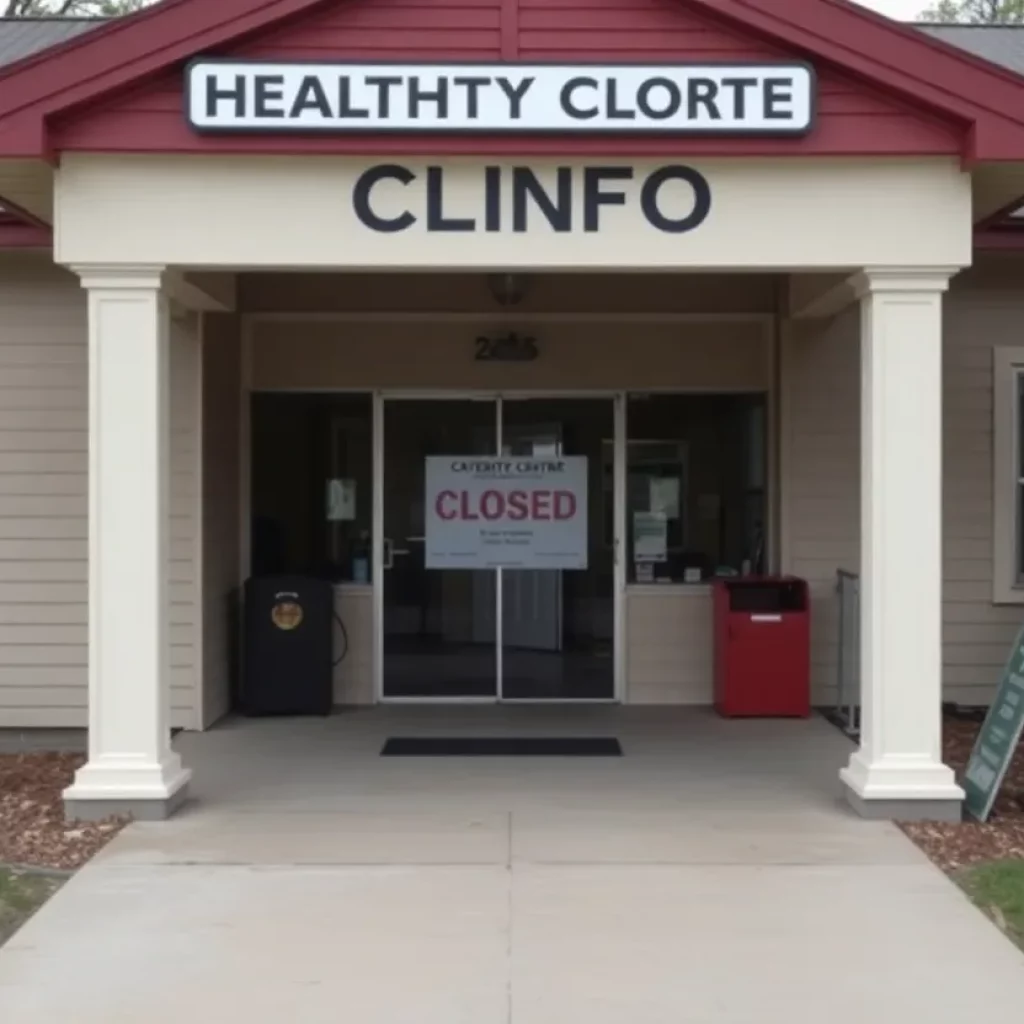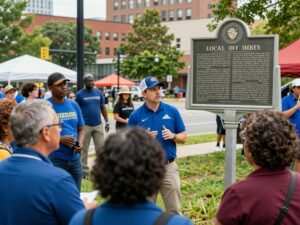News Summary
The closure of the Center for Asbestos Related Disease (CARD) Clinic in Libby, Montana, poses serious risks to the health of the community. Following a court ruling against CARD and BNSF Railway’s allegations of fraudulent claims, the clinic has been forced to shut its doors. This abrupt closure endangers vital health services for residents facing serious asbestos-related health issues. With increasing diagnoses of severe lung diseases, the community’s access to essential care is now compromised, leaving many in a perilous situation as they await possible future developments.
Closure of Libby’s CARD Clinic: A Community in Crisis
The small town of Libby, Montana, faces a significant setback with the recent court-ordered closure of the Center for Asbestos Related Disease (CARD) Clinic, following a judgment favoring BNSF Railway for $3.1 million. The legal turmoil began with a lawsuit filed by BNSF Railway, which accused the clinic of submitting hundreds of fraudulent claims. This unfortunate closure puts at risk the health services provided to numerous residents affected by the deadly effects of asbestos exposure.
The Court’s Decision and Immediate Impact
The closure was enforced through a Writ of Execution, a legal document directing the sheriff to seize and sell property to satisfy the judgment against CARD. The court’s writ was recorded on February 12, 2025, making its way to the Lincoln County Sheriff’s Office by March 5, 2025. Since its inception in 2000, the CARD Clinic has been a haven for those suffering from the consequences of Libby amphibole asbestos exposure, resulting from decades of mining activities in the area.
Mining Legacy Impacting Lives
Libby’s history with asbestos stretches back to the discovery of vermiculite in 1881 and extensive mining operations owned by the Zonolite Company. The mine operated until 1990, with W.R. Grace taking control in the 1960s. By 2002, the Environmental Protection Agency (EPA) deemed Libby a site of critical concern, categorizing it under the Superfund program due to the escalating health crisis stemming from asbestos exposure.
The community has witnessed a notable increase in incidents of severe lung diseases linked to asbestos, including asbestosis and mesothelioma. While current data indicates over 2,400 diagnoses of asbestos-related ailments, the full extent of the mortality linked to asbestos remains inadequately quantified.
BNSF Railway’s Allegations and Community Consequences
BNSF Railway’s legal complaints have further compounded the difficulties faced by the clinic and its patients. The findings from 2019 under the federal False Claims Act detailed that CARD reportedly submitted claims for patients unverified as actually suffering from asbestos-related conditions. The court’s judgement against the clinic included a prior ruling in which CARD was penalized for submitting 337 false claims between 2015 and 2023.
As a result of the closure, those employed at CARD—approximately 19 staff members—are left vulnerable, and the availability of crucial health screenings and treatments for asbestos exposure is jeopardized. The local sheriff, Darren Short, has voiced concerns regarding the repercussions of this closure on public health, emphasizing the importance of assessing ongoing health needs within Libby.
The Future of CARD and Continued Health Concerns
CARD Clinic’s executive director, Tracy McNew, indicated that plans are in place for a potential reopening, but the situation remains uncertain. The clinic’s abrupt closure, deemed temporary by its officials, has raised alarms concerning the future of healthcare resources dedicated to the community’s needs.
With a lawsuit alleging medical malpractice also filed against CARD, alleging misdiagnoses and wrongful prescriptions of opioid painkillers, the clinical and legal fallout has drawn attention to the vulnerability of health services in Libby. As community members face the loss of an essential healthcare provider, worries mount over the long-term implications of exposure to dangerous asbestos remain ever so poignant.
Conclusion: A Community on Edge
Amid ongoing health crises and legal battles, Libby’s struggle amplifies the urgent need for conscientious healthcare and accountability in the face of a legacy mired with asbestos. As the story of CARD Clinic unfolds, the community remains on high alert, hoping for answers and relief amidst afflictions that have long devastated the region.
Deeper Dive: News & Info About This Topic
HERE Resources
Additional Resources
- Asbestos.com: Jury Finds Libby CARD Clinic Guilty of Filing False Asbestos Health Claims
- Wikipedia: Asbestos
- KPAX: Libby’s CARD Clinic Closed Amid Legal Battles Over Health Claims
- Google Search: Libby Montana Asbestos
- EPA: Libby Asbestos Superfund Site
Author: STAFF HERE CHARLESTON
The CHARLESTON STAFF WRITER represents the experienced team at HEREcharleston.com, your go-to source for actionable local news and information in Charleston, Charleston County, and beyond. Specializing in "news you can use," we cover essential topics like product reviews for personal and business needs, local business directories, politics, real estate trends, neighborhood insights, and state news affecting the area—with deep expertise drawn from years of dedicated reporting and strong community input, including local press releases and business updates. We deliver top reporting on high-value events such as the Spoleto Festival USA, Charleston Wine + Food Festival, and the MOJA Festival. Our coverage extends to key organizations like the Charleston Metro Chamber of Commerce and the Charleston Museum, plus leading businesses in tourism and maritime industries that power the local economy such as South Carolina Ports Authority and the Charleston Visitor Center. As part of the broader HERE network, including HEREaiken.com, HEREbeaufort.com, HEREchapin.com, HEREcharleston.com, HEREclinton.com, HEREcolumbia.com, HEREgeorgetown.com, HEREgreenwood.com, HEREgreenville.com, HEREhiltonhead.com, HEREirmo.com, HEREmyrtlebeach.com, HEREnewberry.com, HERErockhill.com, HEREspartanburg.com, HEREaustin.com, HEREcollegestation.com, HEREdallas.com, HEREhouston.com, and HEREsanantonio.com, we provide comprehensive, credible insights into South Carolina's dynamic landscape.










